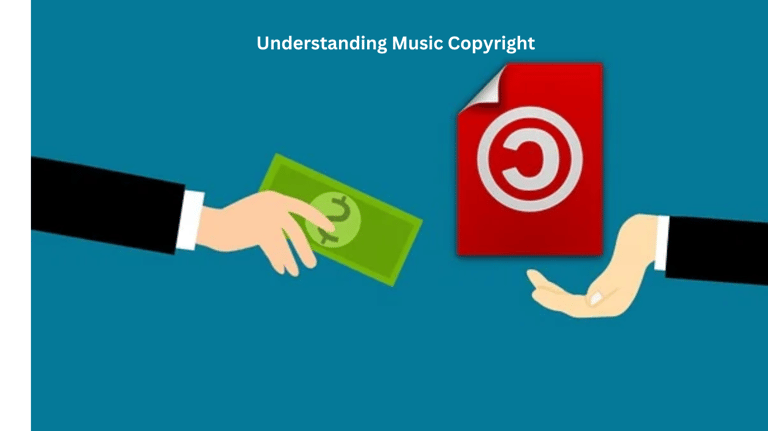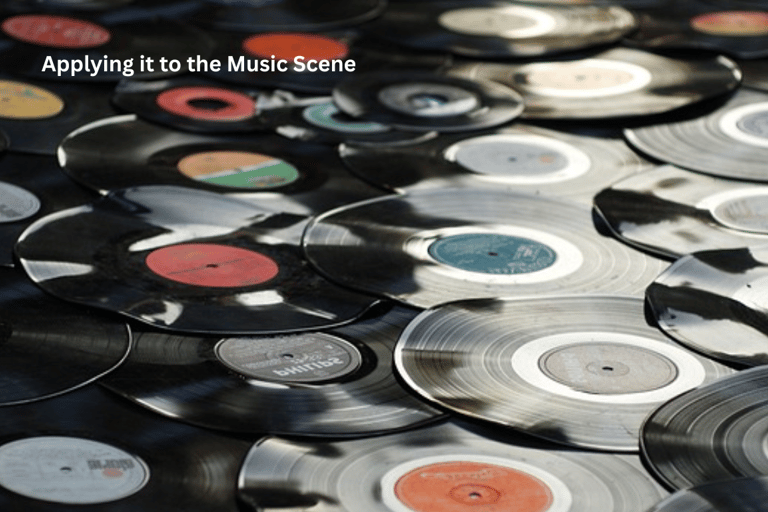Understanding Music Copyright Books for Musicians and Creators
1/25/20255 min read


"Understanding Music Copyright: Books for Musicians and Creators"
In truth, music copyrights are the heart and soul of the music industry. Had there been no rights like this in place, neither would the creators have managed the control over the created work, nor would fair compensation have been used. Practical to explore further, it holds the utmost significance for musicians, composers, producers, and much more. Here is a comprehensive overview of the music copyright law, history, and basic concepts, plus resource links for further learning for any musician or creator.
Basic Concepts of Music Copyright
Copyrighting a song protects any original music piece and the creators themselves. The rights involved are the rights of reproduction, distribution, public performance rights, and all other derivative rights of the creator involved. That's also giving hold for one's benefit on such creation, whereby no usage other than gaining consent or permission from the owners themselves is permitted.
It should be original work, at least, and it should embody a minimum level of creativity that makes it different as defined under copyrights. It cannot appear in any form of pre-existence type already in use.
Fixation: There must be one kind of expression, whether recorded sound or on a paper manuscript sheet, to enable its reaping advantages of copyrights.
It would be decades. This usually occurs during his lifetime and then again after several decades have passed since his death; perhaps it would be 50 to 70 years.
Public Domain: Any work becomes public domain if its copyright term has expired. Today, people can use the works without seeking anybody's permission because they are open to everyone for free.
Fair Use: This is the body of law that allows the use of copyrighted material without the owner's permission. The purpose includes criticism, education, or even parodying.
Licensing: Copyright authors can license their works for a specific use, such as film synchs or other cover versions of artists.
History of Music Copyright
With the invention of the printing press in the 15th century and from the 18th century, it was easy to reproduce and produce many forms of written work, including music copyrights.
Early Developments
The Statute of Anne of 1710 is the first copyright law, though it was initially mainly book-oriented.
The Berne Convention of 1886 also wrote down international standards for copyright that included music.
Contemporary Period
There is a call for new laws on copyright related to music over piracy, royalties from streaming, and samples that necessitate progress in new recording technology, the radio, and digital channels. Two perfect examples are the United States Copyright Act of 1976 and the Digital Millennium Copyright Act, also called the DMCA.
Music Copyright Issue
1. Digital Distribution and Streaming
For instance, although Spotify and YouTube revolutionized the way people listen to music, the biggest listeners will fight over royalties and the artist's fair share.
2. Sampling and Remixing
Sampling that takes a slice of someone else's work in another composition is part of the materials in genres such as hip-hop and electronic music, even though it comes with full-blown debate under copyright.
3. International Enforcement
Due to interconnectivity, it spreads widely worldwide. Enforcing copyright becomes difficult since the laws governing various states vary and differ, and such laws apply to their jurisdiction.
4. Artificial Intelligence
Music synthesized by AI raises numerous copyright problems. A couple of questions concern issues of authorship and the right to be recognized under copyright law.
Books to Read on Understanding the Music Copyright:
Books for the musicians and the makers on understanding music copyright are:
1. Music, Money, and Success: The Inside Story on How to Make Money in the Music Business by Jeffrey Brabec and Todd Brabec. Learn from them all the way down to copyright, royalties, and licensing regarding all the nitty-gritty of the music business. That resource should be a treasure trove to anyone who pursues success through this business by rightly squeezing out whatever they can obtain for their product.
2. Everything You Know About the Music Business-Donald S. Passman
This is a requirement in the industry. In this case, issues may be apparent regarding copyright problems associated with deals and problems in license deals, among other related things.
3. The Plain and Simple Guide to Music Publishing - Randall D. Wixen
It is all about publishing, which has been one of the glaring hotbeds for attention under copyright law for decades. Use it as an accompaniment to learning about topics applicable to protecting your work and sources of potential income.
4. "Copyright Handbook: How to Protect and Use Written Works" by Stephen Fishman
This is not so much for music as an outstanding overview for anyone searching for copyright in this highly necessary domain and its uses within the artistic community.
5. "This Business of Music" by M. William Krasilovsky and Sidney Shemel
This book contains everything there is to know about the music business, including a very detailed copyright section. Because it is valuable enough, it can handle any legal and financial issues surrounding the making and distribution of music.
Applying it to the Music Scene
Almost applied to this sense of understanding of the concept of music copyright, which helps to see what comes next. Here are a few practical tips:
Register Your Work: While copyright is automatic in itself, register with the concerned office to create evidence of the work before a court of law.
Know your Rights: A knowledge of exactly which rights will exclusively be vested by your copyright.
License Wisely: License your work so you can use licenses to manage who can do what and to what extent others will use your work.
Track Your Use: Keep track of where and in what context your music is being used, mainly if your music is being distributed digitally.
Consult Experts: If you are unsure, always consult with a copyright lawyer or an attorney in the music industry.
Frequently Asked Questions
1. What is music copyright?
This, therefore, enables ownership of the work and the right to utilization for fair compensation. It further governs the piracy of music regarding its unauthorized production, distribution, and adaptation.
2. How do I copyright my songs?
You normally copyright your songs at your country's Copyright office. For instance, copyright in the USA will be on the U.S. Copyright Office website.
3. If someone else uses your song, but you did not give them your permission to use it?
If another uses your music and you haven't authorized them, you may sue the case or a cease-send and desist letter asking for damages.
4. Can I copyright a melody or chord progression?
A melody will be copyrightable only if original and fixed on a tangible medium. But chord progressions are central to music composition, so those can't be copyrights.
5. Does copyrights have limitations?
Yes. Copyright law comes within the law doctrine and might be used, to the extent copyright material is allowed, for education, criticism, or parody, as parodies may be well within questions of fair use or not at times. Therefore, music copyright forms the understanding of the concept by one who creates or utilizes music. The musician and more books about this updated change make an individual feel more than sure about the rights he should protect confidently while navigating today's music world.







